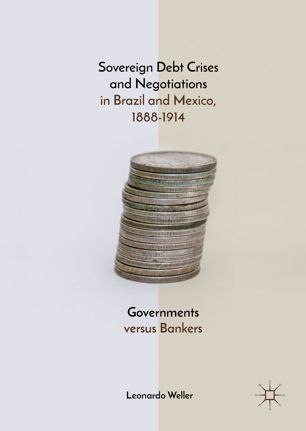

Most ebook files are in PDF format, so you can easily read them using various software such as Foxit Reader or directly on the Google Chrome browser.
Some ebook files are released by publishers in other formats such as .awz, .mobi, .epub, .fb2, etc. You may need to install specific software to read these formats on mobile/PC, such as Calibre.
Please read the tutorial at this link: https://ebookbell.com/faq
We offer FREE conversion to the popular formats you request; however, this may take some time. Therefore, right after payment, please email us, and we will try to provide the service as quickly as possible.
For some exceptional file formats or broken links (if any), please refrain from opening any disputes. Instead, email us first, and we will try to assist within a maximum of 6 hours.
EbookBell Team

4.0
16 reviewsThis book analyzes the relative balance of bargaining power between governments and the banks in charge of underwriting their debt during the first financial globalization. Brazil and Mexico, both indebted countries that underwent major changes in reputation and negotiating power as they faced financial crises, provide valuable case studies of government strategies for obtaining the best possible outcomes. Previous literature has focused on bankers’ perspectives and emphasized that debtors were submissive during negotiations, but Weller finds that governments’ negotiating power varied over time. He presents a new analytical framework that interprets when and why officials were likely to negotiate loans more or less effectively, with newly uncovered primary sources from debtors’ and creditors’ archives suggesting key causes of variation: fiscal accounts, political stability, and creditors’ exposure and reputation.